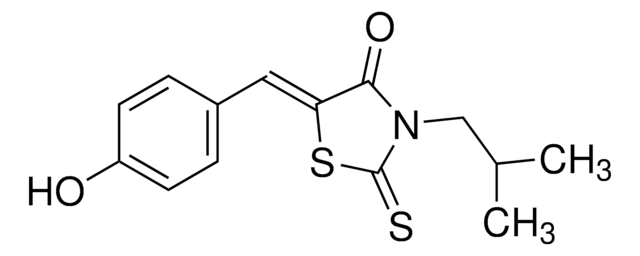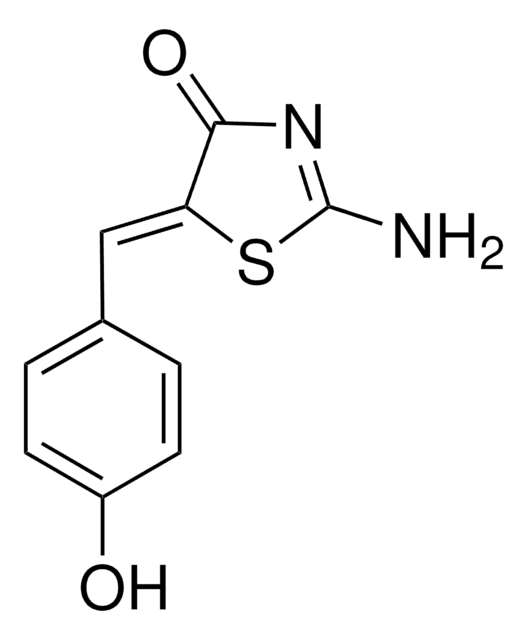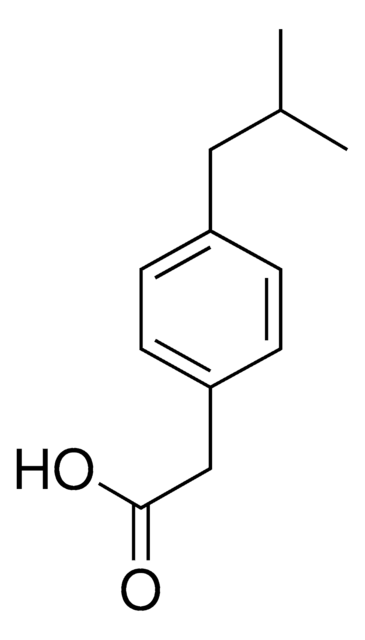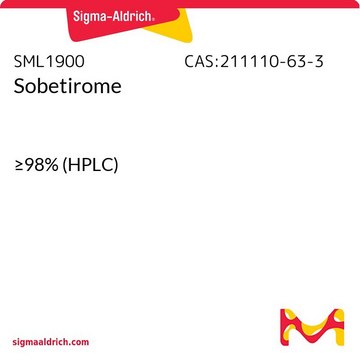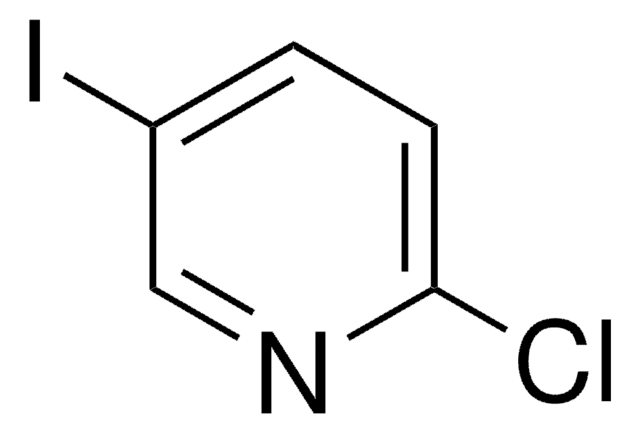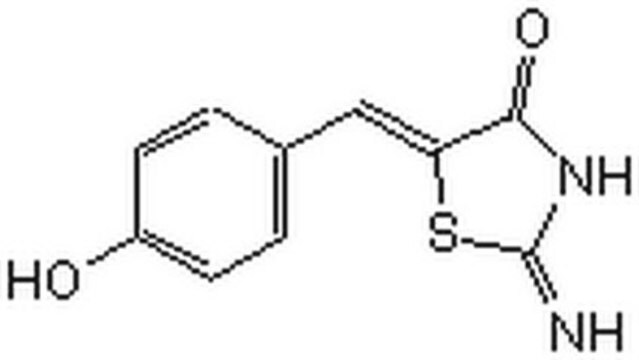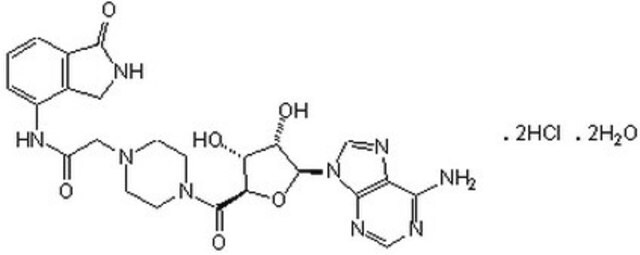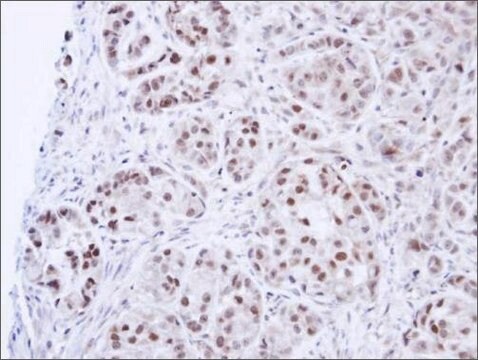SML1839
PFM39
≥98% (HPLC)
Synonym(s):
(5Z)-2-Amino-5-[(4-aminophenyl)methylene]-4(5H)-thiazolone, 5-(4-Aminobenzylidene)-2-iminothiazolidin-4-one
Sign Into View Organizational & Contract Pricing
All Photos(1)
About This Item
Empirical Formula (Hill Notation):
C10H9N3OS
CAS Number:
Molecular Weight:
219.26
UNSPSC Code:
12352200
NACRES:
NA.77
Recommended Products
Quality Level
Assay
≥98% (HPLC)
form
powder
color
yellow to orange
solubility
DMSO: 15 mg/mL, clear
storage temp.
2-8°C
SMILES string
NC1=CC=C(/C=C2SC(NC\2=O)=N)C=C1
Biochem/physiol Actions
PFM39 is a potent cell-permeable Mirin analog that selectively inhibits MRE11 exo-, but not endo-, nuclease activity. PFM39 targets MRE11 in a fashion similar to Mirin, but distinct from that of PFM01 to allow a blockage of dsDNA phosphate backbone rotation and selective inhibition against MRE11 exo-, but not endo-, nuclease activity. FM39 potently impairs G2-phase double-strand break (DSB) repair in 1BR3-hTERT fibrolasts following ionizing irradiation (IR).
Signal Word
Warning
Hazard Statements
Precautionary Statements
Hazard Classifications
Eye Irrit. 2
Storage Class Code
11 - Combustible Solids
WGK
WGK 3
Flash Point(F)
Not applicable
Flash Point(C)
Not applicable
Choose from one of the most recent versions:
Certificates of Analysis (COA)
Lot/Batch Number
Don't see the Right Version?
If you require a particular version, you can look up a specific certificate by the Lot or Batch number.
Already Own This Product?
Find documentation for the products that you have recently purchased in the Document Library.
Ronan Broderick et al.
Nature cell biology, 18(3), 271-280 (2016-01-26)
Repair of DNA double-strand breaks (DSBs) by homologous recombination (HR) is critical for survival and genome stability of individual cells and organisms, but also contributes to the genetic diversity of species. A vital step in HR is MRN-CtIP-dependent end resection
Atsushi Shibata et al.
Molecular cell, 53(1), 7-18 (2013-12-10)
MRE11 within the MRE11-RAD50-NBS1 (MRN) complex acts in DNA double-strand break repair (DSBR), detection, and signaling; yet, how its endo- and exonuclease activities regulate DSBR by nonhomologous end-joining (NHEJ) versus homologous recombination (HR) remains enigmatic. Here, we employed structure-based design
Our team of scientists has experience in all areas of research including Life Science, Material Science, Chemical Synthesis, Chromatography, Analytical and many others.
Contact Technical Service